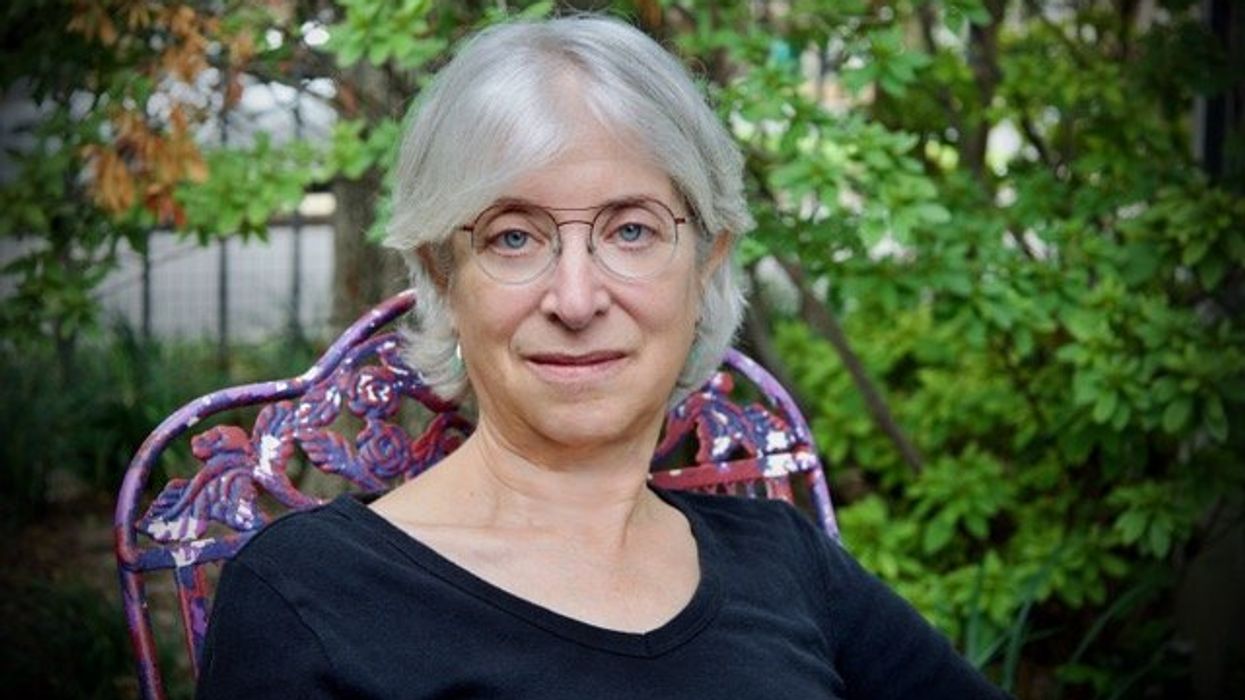Herself with a Moving Backstory, Leah Lax Compiles Those of Houston Immigrants in a New, Must-Read Book

Leah Lax
A PANICKED MOTHER traveling by foot from El Salvador to reach the U.S.-Mexico border rubs crushed garlic cloves on her skin to ward off the cottonmouth snakes crawling over her legs. A group of half-starved teenage Vietnamese refugees on a boat they hoped would ferry them to safety huddle together as pirates board and steal all their possessions. At a UN Refugee Office, a father of six and a member of the Movement for the Survival of the Ogoni People (a minority ethnic group based in southern Nigeria) whose leadership had been executed by a corrupt Nigerian government, is granted emergency refugee status. The interviewer reaches into her pocket and hands him money to smuggle his family out of Nigeria.
These are just a few of the moments of terror, resilience, and grace that fill the pages of Leah Lax’s new book, Not From Here: The Song of America, a collection of first-person accounts by Houston immigrants describing their journey from unendurable circumstances to the United States.

In 2006, Lax was commissioned by the Houston Grand Opera to create a libretto for The Refuge, an opera based on local immigrant experiences. After the opera’s premiere in 2007, and throughout the tumultuous years of the Trump presidency, Lax was compelled to compile the interviews into a book and investigate her repressed family history.
At 16, Lax, then a closeted lesbian, left her childhood home where she’d been abused to join an evangelical Hasidic group, ultimately winding up in one such community in the Fondren area of Houston. She obeyed the sect’s strict interpretation of Jewish law, accepted an arranged marriage at 18, and bore seven children in a 10-year timespan. Lax was 45 when she divorced her husband and began living openly as a secular person and a lesbian (she and her partner have been together for 19 years). But for a long time, Lax felt like a stranger in her own country.
Lax’s initial attempts to gain the trust of people whose survival often depended on not sharing their personal histories were awkward. “It was a delicate approach that I didn’t understand at first,” says Lax, who asked each subject to begin with, “I was born…,” so they could describe a time and place where they felt settled before things changed. As they relaxed, the interviewees were relieved to tell their stories in a safe space. “It was the men who tended to cry.”
At the time of the interviews, Lax had “rigorously rejected” the fundamentalist teachings of Hasidism, but soon discovered religion was a deep part of the ethnic identity of her subjects; each person possessed a kind of faith she had never seen. “It was very open-eyed,” says Lax. “They weren’t in denial.” For Lax, listening is key to her work, and as she listened to people from so many different backgrounds and with many different religious faiths, she began to feel “less like a minority” and more like an American.
Lax also came to realize the determination and creative thinking required to brave the migration to and thrive in a foreign land is the very root of America’s identity, qualities that any Houstonian reading Not From Here will recognize within themselves.
Brazos Bookstore will host Leah Lax in-store on Thursday, April 4 at 6:30 p.m.



